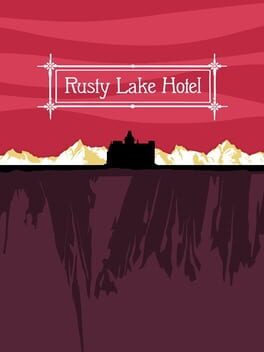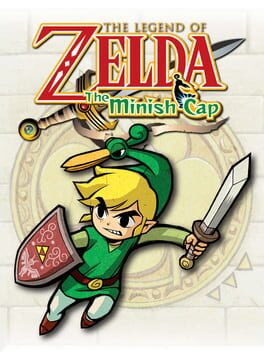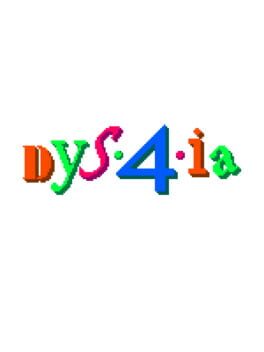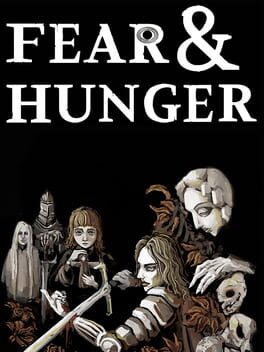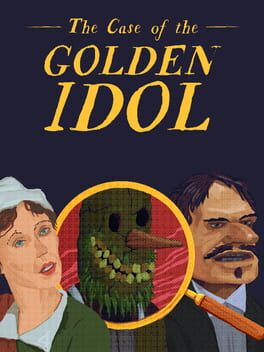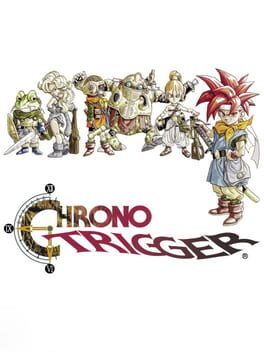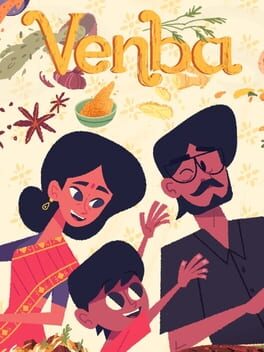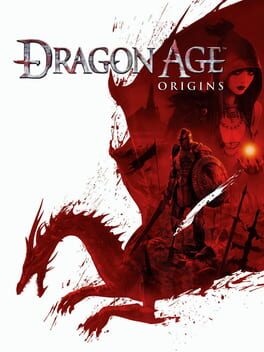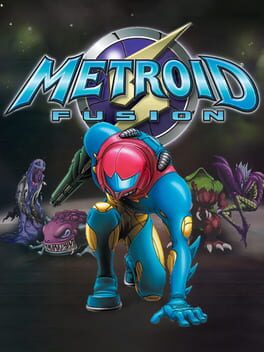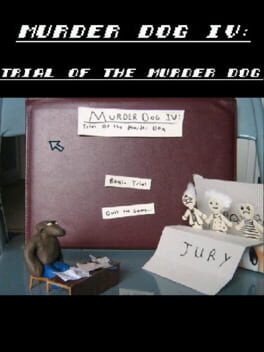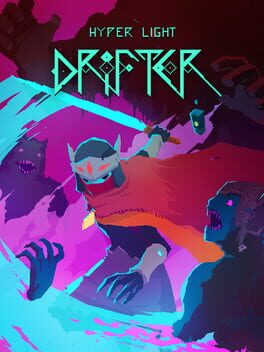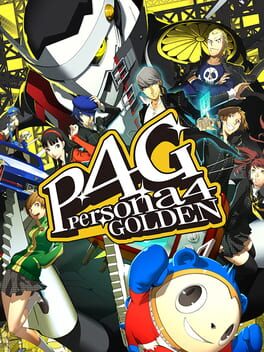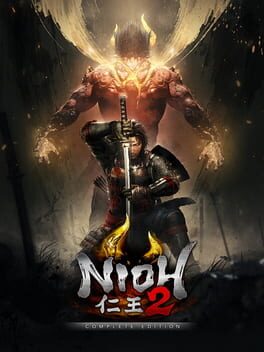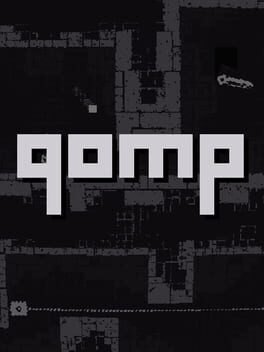2015
The puzzles get really nonsensical late game, and yes I understand the bizarre direction of the game but even the line of thought breaks at the leaps designed.
I fell into the trapping of jumping into this right away without playing the prev games, but honestly even from an outsider viewpoint I don't see how RLH pushes a narrative forward. You do the puzzles, get a single vague scene at the end and that's it.
I fell into the trapping of jumping into this right away without playing the prev games, but honestly even from an outsider viewpoint I don't see how RLH pushes a narrative forward. You do the puzzles, get a single vague scene at the end and that's it.
Probably the best 2D Zelda game so far. Minish cap hold charm for how it gets its points right. Its a smaller world for a small device, akin to link's awakening in design. Plus it has everything you'd expect from a game titled Zelda.
My biggest gripes are reoccurring issues, that later dungeons get really convoluted that it's just a handicap to not have a guide for the tough parts on. 2nd is that the game dangles a lot of items that you can't reach yet, so you need to make notes for what you missed since the game doesn't offer markers if you entered the area once and going back and forth to check if you've progressed enough to get it plus the tedium of some areas really makes it a chore.
However, it's the most well-rounded 2D entry and if there's one 2D Zelda you'd play, make it this one.
My biggest gripes are reoccurring issues, that later dungeons get really convoluted that it's just a handicap to not have a guide for the tough parts on. 2nd is that the game dangles a lot of items that you can't reach yet, so you need to make notes for what you missed since the game doesn't offer markers if you entered the area once and going back and forth to check if you've progressed enough to get it plus the tedium of some areas really makes it a chore.
However, it's the most well-rounded 2D entry and if there's one 2D Zelda you'd play, make it this one.
2012
1997
The game that kickstarted a very distinctive IP at least in my opinion. However, it is a VERY rough game even with patches. I spent a good 20 mins of my time fidgeting with an elevator because some NPCs kept blocking it. I used fixt only but I'd recommend ET TU if you're planning to play.
However I'd understand if someone were to skip it for two, since I've heard that 2 is an overall improvement. F1 isn't plot-heavy so you can recap it if that's what matters for you. It is a decent game but the jank is unwieldy and frustrating. It is a somewhat inaccessible game but these guys went so hard on the art and concept that I can't be hard on them.
However I'd understand if someone were to skip it for two, since I've heard that 2 is an overall improvement. F1 isn't plot-heavy so you can recap it if that's what matters for you. It is a decent game but the jank is unwieldy and frustrating. It is a somewhat inaccessible game but these guys went so hard on the art and concept that I can't be hard on them.
2018
I'm somewhat torn about how to judge. If I were to be reductive I could just call Fear & Hunger a shock-value RPG Maker game with the usual issues of being so, but its more than that honestly.
The art of this game is palpably grotesque, even the "normal" human characters have this macabre tainted aura around them. The thick-lined styling and heavy colors are very well-made, and I can't discredit or nitpick at it at all.
The exploration of the dungeon and beyond is very stressing especially as a first impression, combat is brutal especially when you're still alone and you'll dread every encounter you can't escape. Other than that you'd be looting alot for anything that gives you an edge while you're trying to grasp the madness in every floor and room.
But honestly I dislike how hard the game goes on you on how it doesn't teach you or build scenarios to learn anything at all. Everything must be learned through trial, and with how the game treats saving you will pay dearly for screwing something up. That results in a tedious loop of you - or maybe just me - scumming a save file repeatedly trying to find out how god affinities work or what weakness should you leverage against a particular enemy. This is my biggest bane and I wish I could have a better way to explore the dungeon because I am genuinely sold on it.
The art of this game is palpably grotesque, even the "normal" human characters have this macabre tainted aura around them. The thick-lined styling and heavy colors are very well-made, and I can't discredit or nitpick at it at all.
The exploration of the dungeon and beyond is very stressing especially as a first impression, combat is brutal especially when you're still alone and you'll dread every encounter you can't escape. Other than that you'd be looting alot for anything that gives you an edge while you're trying to grasp the madness in every floor and room.
But honestly I dislike how hard the game goes on you on how it doesn't teach you or build scenarios to learn anything at all. Everything must be learned through trial, and with how the game treats saving you will pay dearly for screwing something up. That results in a tedious loop of you - or maybe just me - scumming a save file repeatedly trying to find out how god affinities work or what weakness should you leverage against a particular enemy. This is my biggest bane and I wish I could have a better way to explore the dungeon because I am genuinely sold on it.
While it's not simply a murder mystery, Golden Idol draws a still scene for you to parse, whether it's a murder or a disappearance and so on. Instead of ruffling the scene for clues to add to a list, you earn words to use on a mad-libs type scroll to make sense of assailants, objects, or actions.
I dig the art even if it shows its seams at times, the only thing that felt especially jarring is the occasional comic style cutscenes between some chapters. Being pre-rendered it strips away the charm of the art and introduces laughably bad speech boxes that look amateurish at best.
Puzzle design is fun and the story itself interested to progress with, but some level had inconsistently long leaps of logic between the solving steps that it turns into guesswork with the scroll. Since it gives a special warning when you've got two or fewer mistakes, meaning you can keep swapping pieces while using confirmed pieces as a control group. I can't describe this as me spoiling my fun, since most of those instances were when I found the solution but was struggling with composition of the pieces.
I did like how it lets you do some minigame style puzzles to unlock hints, I only needed to use it once, but it's a nice idea of breaking the thinking tedium and jog your mind elsewhere. As a fun way to re-tread the events, you can also check previous chapters and solutions to eliminate some of the guesswork for scrolls, the game even prompts you to do so at the final chapter.
Music was really nice and fitting though, especially the first expansion. It was standout kind of good.
The first expansion; the spider of Lanka is a prequel to the events of the game. Animation is improved however the scenario script was too convoluted for my tastes. I spent more time switching pieces than I did exploring the scenes.
The second expansion is a continuation that bookends exactly where the base game begins, more of the same, don't have much to say.
It does have apparent flaws, but it's a good detective puzzler with a nice story to follow.
I dig the art even if it shows its seams at times, the only thing that felt especially jarring is the occasional comic style cutscenes between some chapters. Being pre-rendered it strips away the charm of the art and introduces laughably bad speech boxes that look amateurish at best.
Puzzle design is fun and the story itself interested to progress with, but some level had inconsistently long leaps of logic between the solving steps that it turns into guesswork with the scroll. Since it gives a special warning when you've got two or fewer mistakes, meaning you can keep swapping pieces while using confirmed pieces as a control group. I can't describe this as me spoiling my fun, since most of those instances were when I found the solution but was struggling with composition of the pieces.
I did like how it lets you do some minigame style puzzles to unlock hints, I only needed to use it once, but it's a nice idea of breaking the thinking tedium and jog your mind elsewhere. As a fun way to re-tread the events, you can also check previous chapters and solutions to eliminate some of the guesswork for scrolls, the game even prompts you to do so at the final chapter.
Music was really nice and fitting though, especially the first expansion. It was standout kind of good.
The first expansion; the spider of Lanka is a prequel to the events of the game. Animation is improved however the scenario script was too convoluted for my tastes. I spent more time switching pieces than I did exploring the scenes.
The second expansion is a continuation that bookends exactly where the base game begins, more of the same, don't have much to say.
It does have apparent flaws, but it's a good detective puzzler with a nice story to follow.
2018
A fantastic experience to say the least, Chrono trigger is a very playful game if that's the correct word to use. It has one of the most gripping intros I've played in recent memory, it prods and pranks you, it tosses underhanded jokes with and at you.
The combat is one of the best turn-based systems I've played, using turn gauges instead of a back-and-forth loop gives headroom for experimentation and the combo techs (moves) gives it even more depth.
Chrono's story isn't just one item to speak of, its the main plot or each character's backstory and origin or the results of your actions and the ripple effect they cause. CT has a good way of materializing your actions into tangible results on the world. Not to forget it handles time travel very tastefully.
HOWEVER PLEASE DO NOT PLAY THIS OR THE DS PORT. Additional areas like the dark sanctum is offensively cheap filler that has you backtrack A L O T through some of the most uninspired areas. It degrades the original game and will just steal about 6 hrs of your life, please go for the PS port for the Anime cutscenes by Toriyama's studio, or for the original SNES port for faster loadings. THE ADDITIONS ARE SHAMEFUL TO BE BUNDLED WITH THIS GEM.
The combat is one of the best turn-based systems I've played, using turn gauges instead of a back-and-forth loop gives headroom for experimentation and the combo techs (moves) gives it even more depth.
Chrono's story isn't just one item to speak of, its the main plot or each character's backstory and origin or the results of your actions and the ripple effect they cause. CT has a good way of materializing your actions into tangible results on the world. Not to forget it handles time travel very tastefully.
HOWEVER PLEASE DO NOT PLAY THIS OR THE DS PORT. Additional areas like the dark sanctum is offensively cheap filler that has you backtrack A L O T through some of the most uninspired areas. It degrades the original game and will just steal about 6 hrs of your life, please go for the PS port for the Anime cutscenes by Toriyama's studio, or for the original SNES port for faster loadings. THE ADDITIONS ARE SHAMEFUL TO BE BUNDLED WITH THIS GEM.
2023
Not to be reductive towards a work of passion, but Venba doesn't say much at all despite seeming to touch on many subjects.
The cooking aspect is simple, you have incomplete recipe steps, so there's some intuitive guesswork included. However it's not difficult by any means.
Something that disappointed me is that it wasn't able to foster an interest in the food itself. They briefly gloss over the dishes being made, since they wanted to give space to include the narrative in each cooking sequence.
The story of Venba's family is realistic, as an immigrant I can't deny that I co-sign the experience even when my cultural transition wasn't as severe as the one depicted. Add upon it the tension of having a kid torn between two cultures with the added societal of trying to fit in. Yet, like most of what Venba presents, it's glossed over.
The fuzzy art is alright, but I think it doesn't serve the food justice visually. I'm not expecting Ghibli styled food, but I wouldn't know to separate the different spices if not for the text labels.
So you've got the story of immigrant parents struggling with a foreign environment with the added burden of raising a kid, the idea of balancing heritage with surroundings, they credited food consultants yet couldn't build a quantum of curiosity.
Venba - in my opinion - is a vapid representation that thinks itself an exposé on a very nuanced and intersectional topic. God I hate Canadian fund games.
The cooking aspect is simple, you have incomplete recipe steps, so there's some intuitive guesswork included. However it's not difficult by any means.
Something that disappointed me is that it wasn't able to foster an interest in the food itself. They briefly gloss over the dishes being made, since they wanted to give space to include the narrative in each cooking sequence.
The story of Venba's family is realistic, as an immigrant I can't deny that I co-sign the experience even when my cultural transition wasn't as severe as the one depicted. Add upon it the tension of having a kid torn between two cultures with the added societal of trying to fit in. Yet, like most of what Venba presents, it's glossed over.
The fuzzy art is alright, but I think it doesn't serve the food justice visually. I'm not expecting Ghibli styled food, but I wouldn't know to separate the different spices if not for the text labels.
So you've got the story of immigrant parents struggling with a foreign environment with the added burden of raising a kid, the idea of balancing heritage with surroundings, they credited food consultants yet couldn't build a quantum of curiosity.
Venba - in my opinion - is a vapid representation that thinks itself an exposé on a very nuanced and intersectional topic. God I hate Canadian fund games.
2009
After sinking more than 20 hrs in it. I still couldn't be sold on it for a handful of reasons.
Being an RPG I think it's fitting to start with the world. DA:O fantasy setting ebbs and flows in odd ways. The lore has some pretty interesting concepts like the politics between mages and templars, elven creation myths and more. Then you look at the world and all in all, it just looks like store-brand medieval fantasy. Most of what's interesting is crammed in codex entries that you get flooded with every time you venture into a new place, then it trickles until the next place etc...
Combat is something that I was waiting on, the tactical real-time system that was inherited from KOTOR is pretty good on paper. I specifically picked an elven mage to try and get the most of it. I can't say it's bad when I had some fun with it, but with how each location has a dungeon-ish area and difficult skirmishes require lots of pausing and ordering it turns to a slog, even more when you find only a few enemy types in each dungeon. Random encounter were much more fun than late dungeon battles.
The cast isn't very charming, even talking to them over campfire didn't draw much out of them, spontaneous banter between characters was the highlight and oddly it makes me feel left out of being able to have the same conversations with them. Since gaining their favor gives a bonus, you're discouraged from teasing or contesting them to get exciting responses.
To summarize DA:O, its elements are better than the total sum. Good lore with bad exposition and presentation, characters that react to each other more than new, interesting combat that is misappropriated. It's like the antithesis of a world like The Witcher, its parts aren't very remarkable yet they gell well and make up a superior sum.
Being an RPG I think it's fitting to start with the world. DA:O fantasy setting ebbs and flows in odd ways. The lore has some pretty interesting concepts like the politics between mages and templars, elven creation myths and more. Then you look at the world and all in all, it just looks like store-brand medieval fantasy. Most of what's interesting is crammed in codex entries that you get flooded with every time you venture into a new place, then it trickles until the next place etc...
Combat is something that I was waiting on, the tactical real-time system that was inherited from KOTOR is pretty good on paper. I specifically picked an elven mage to try and get the most of it. I can't say it's bad when I had some fun with it, but with how each location has a dungeon-ish area and difficult skirmishes require lots of pausing and ordering it turns to a slog, even more when you find only a few enemy types in each dungeon. Random encounter were much more fun than late dungeon battles.
The cast isn't very charming, even talking to them over campfire didn't draw much out of them, spontaneous banter between characters was the highlight and oddly it makes me feel left out of being able to have the same conversations with them. Since gaining their favor gives a bonus, you're discouraged from teasing or contesting them to get exciting responses.
To summarize DA:O, its elements are better than the total sum. Good lore with bad exposition and presentation, characters that react to each other more than new, interesting combat that is misappropriated. It's like the antithesis of a world like The Witcher, its parts aren't very remarkable yet they gell well and make up a superior sum.
2002
I still had an appetite for 2D, so I decided to go for Fusion before Prime. It's an odd entry compared to what I played before. Its linearity of including rooms where you receive objectives is an odd design choice, it does allow for a stronger story but it still feels out of place with older game elements that were passed on through multiple release.
Gameplay and map design had also received a substantial change. As now you use a hub elevator to go between areas until late game where you open shortcuts, however a lot of these shortcuts are part of closed sequences so it feels restricting, and I missed this sense of freedom.
Boss designs are either basic or rehashed, meeting a version of ridley here didn't feel as fun as it should. However being chased by the mimic was fun and I hoped to see more of it.
It's sometimes obtuse even regarding main objective progression, and there are the changes above. It's still a Metroid game above all else, and that itself means a lot.
Gameplay and map design had also received a substantial change. As now you use a hub elevator to go between areas until late game where you open shortcuts, however a lot of these shortcuts are part of closed sequences so it feels restricting, and I missed this sense of freedom.
Boss designs are either basic or rehashed, meeting a version of ridley here didn't feel as fun as it should. However being chased by the mimic was fun and I hoped to see more of it.
It's sometimes obtuse even regarding main objective progression, and there are the changes above. It's still a Metroid game above all else, and that itself means a lot.
2011
A nuanced exercise of meaninglessness. Murder dog can win by losing or lose by winning. The losing end isn't as good as it forces a subjective standard of futility compared to the grand act of defiance by the bloodthirsty pup.
One thing that stands uncontested is that his appetite for carnage is indeed voluminous.
One thing that stands uncontested is that his appetite for carnage is indeed voluminous.
2016
A nice little experience. Obviously inspired in design by Zelda and the like, however it wears its simplicity close to its heart.
Combat and enemy design is very straightforward, most enemies have one attack and maybe two for advanced enemies. Your abilities and upgrades are also without frills, Yet they're intuitive despite the game not using text at all except for the non-diegetic tutorial popups.
HLD's world has an interesting depiction. For the most part it seems foreign as a setting, with you only understanding the ques of who's an enemy or what you're remotely planning to do. I liked the idea that the game never uses text to convey anything about itself. The few NPCs that you can talk to use little moody illustrations as dialogue.
Boss designs are nice as well, their moves and attacks are simple to understand and normally fights are done in a few minutes max.
This solidifies my interpretation of it. HLD is a short game that plays like a fleeting dream. It's visuals, premise, audio, and continuation all go along with this. Completed in single digit hours, Hyper Light Drifter settles well as a familiar little pit stop along the road.
Combat and enemy design is very straightforward, most enemies have one attack and maybe two for advanced enemies. Your abilities and upgrades are also without frills, Yet they're intuitive despite the game not using text at all except for the non-diegetic tutorial popups.
HLD's world has an interesting depiction. For the most part it seems foreign as a setting, with you only understanding the ques of who's an enemy or what you're remotely planning to do. I liked the idea that the game never uses text to convey anything about itself. The few NPCs that you can talk to use little moody illustrations as dialogue.
Boss designs are nice as well, their moves and attacks are simple to understand and normally fights are done in a few minutes max.
This solidifies my interpretation of it. HLD is a short game that plays like a fleeting dream. It's visuals, premise, audio, and continuation all go along with this. Completed in single digit hours, Hyper Light Drifter settles well as a familiar little pit stop along the road.
2020
As a subsequent entry It falls from the graceful plateau that is 3, and that's even after giving it a novelty buffer since 3 was my first persona. The setting, cast, plot and ending is markedly worse imo.
The cast is a letdown honestly. For example, I thought Junpei was lacking but compared to Yoskue he's a saint. Same with the others, even teddie started off well but he fell off as I moved forward with the game. The TV setting isn't half as cool as the dark hour, the tower did much better as a dungeon as well. Even the velvet elevator looked cooler than the limo.
To give its due, it introduced good QOL additions. Like the quicksave (IK it's a re-release improvement) and the fusion search which made experimenting much more inviting.
It ends on an odd low note (even the "good" ending) which crowns it as a enjoyable letdown. Even in little details like completing social links, the game throws a lot of bullshit at you, and that's infuriating that even when social links was my highest priority I didn't like how little progress it gives you unless you fixate on a specific link.
I doubt it'll ever rise from being the worst persona I tried, but it's still a persona game all in all. Try it if you're interested, but honestly my recommendation is that you're not missing out if you decide to skip it.
The cast is a letdown honestly. For example, I thought Junpei was lacking but compared to Yoskue he's a saint. Same with the others, even teddie started off well but he fell off as I moved forward with the game. The TV setting isn't half as cool as the dark hour, the tower did much better as a dungeon as well. Even the velvet elevator looked cooler than the limo.
To give its due, it introduced good QOL additions. Like the quicksave (IK it's a re-release improvement) and the fusion search which made experimenting much more inviting.
It ends on an odd low note (even the "good" ending) which crowns it as a enjoyable letdown. Even in little details like completing social links, the game throws a lot of bullshit at you, and that's infuriating that even when social links was my highest priority I didn't like how little progress it gives you unless you fixate on a specific link.
I doubt it'll ever rise from being the worst persona I tried, but it's still a persona game all in all. Try it if you're interested, but honestly my recommendation is that you're not missing out if you decide to skip it.
Not that there's a gaping flaw with Nioh2, but it's just different take on the souls formula that wasn't to my taste.
It takes a few elements and ramps them up. The leveling tree for example unlocks a variety of overlapping skills/moves, so you get a detailed move list to swap and pick your desired move for inputs at different stances for different weapons. Loot is way more than the usual souls game so there's a lot of loot management that I didn't really like.
Instead of a bigger overworld, here we have detached stages with a level select screen. The souls-like design of unlocking shortcuts is very blunt, you're gonna find a door 2 mins or less into the stage and know you're gonna unlock it an hour or so ahead.
Yokai shifts and moves unlock an extra layer of complexity along with the dark realm mechanic.
It is an exercise of playing around with mechanics upon a derivative souls design. It is too overbearing for me but it could be the thing for you.
It takes a few elements and ramps them up. The leveling tree for example unlocks a variety of overlapping skills/moves, so you get a detailed move list to swap and pick your desired move for inputs at different stances for different weapons. Loot is way more than the usual souls game so there's a lot of loot management that I didn't really like.
Instead of a bigger overworld, here we have detached stages with a level select screen. The souls-like design of unlocking shortcuts is very blunt, you're gonna find a door 2 mins or less into the stage and know you're gonna unlock it an hour or so ahead.
Yokai shifts and moves unlock an extra layer of complexity along with the dark realm mechanic.
It is an exercise of playing around with mechanics upon a derivative souls design. It is too overbearing for me but it could be the thing for you.
2021
A genuine effort that wins you over by being good and earnest. More than simply the 1 button game.
The narrative ideation gives it so much soul and along with the audio and visual art elevates it far beyond a gimmicky limitation.
Puzzles are great and varied, and not to forget well layered which gives the game great mileage out of a few elements. The mechanical and visual design is straightforward and translates well into being simple to understand and fun to play with. You've got boss fights and they're great.
A sub 2-hour elegant game. Recommending it couldn't be easier.
The narrative ideation gives it so much soul and along with the audio and visual art elevates it far beyond a gimmicky limitation.
Puzzles are great and varied, and not to forget well layered which gives the game great mileage out of a few elements. The mechanical and visual design is straightforward and translates well into being simple to understand and fun to play with. You've got boss fights and they're great.
A sub 2-hour elegant game. Recommending it couldn't be easier.
